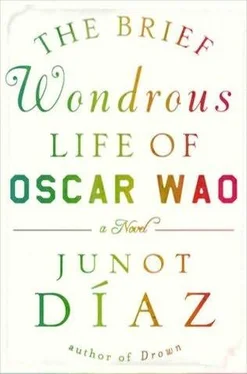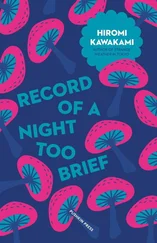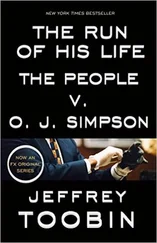Anyway, I thought maybe the feeling was about Max and so one day I let him take us to one of the love motels. He was so excited he almost fell off the bed and the first thing he wanted was to look at my ass. I never knew my big ass could be such a star attraction but he kissed it, four, five times, gave me goose bumps with his breath and pronounced it a tesoro. When we were done and he was in the bathroom washing himself I stood in front of the mirror naked and looked at my culo for the first time. A tesoro, I repeated. A treasure.
Well? Rosio asked at school. And I nodded once, quickly, and she grabbed me and laughed and all the girls I hated turned to look but what could they do? Happiness, when it comes, is stronger than all the jerk girls in Santo Domingo combined.
But I was still confused. Because the feeling, it just kept getting stronger and stronger, wouldn’t let me sleep, wouldn’t give me any peace. I started losing races, which was something I never did.
You ain’t so great, are you, gringa, the girls on the other teams hissed at me and I could only hang my head. Coach Cortes was so unhappy he just locked himself in his car and wouldn’t say anything to any of us.
The whole thing was driving me crazy, and then one night I came home from being out with Max. He had taken me for a walk along the Malecón—he never had money for anything else—and we had watched the bats zigzagging over the palms and an old ship head into the distance. He talked quietly about moving to the U.S. while I stretched my hamstrings. My abuela was waiting for me at the living room table. Even though she still wears black to mourn the husband she lost when she was young she’s one of the most handsome women I’ve ever known. We have the same jagged lightning-bolt part and the first time I saw her at the airport I didn’t want to admit it but I knew that things were going to be OK between us. She stood like she was her own best thing and when she saw me she said, Hija, I have waited for you since the day you left. And then she hugged me and kissed me and said, I’m your abuela, but you can call me La Inca.
Standing over her that night, her part like a crack in her hair, I felt a surge of tenderness. I put my arms around her and that was when I noticed that she was looking at photos. Old photos, the kind I’d never seen in my house. Photos of my mother when she was young and of other people. I picked one up. Mami was standing in front of a Chinese restaurant. Even with the apron on she looked potent, like someone who was going to be someone.
She was very guapa, I said casually. Abuela snorted. Guapa soy yo. Your mother was a diosa.
But so cabeza dura. When she was your age we never got along. I didn’t know that, I said. She was cabeza dura and I was…exigente. But it all turned out for the best, she sighed. We have you and your brother and that’s more than anyone could have hoped for, given what came before. She plucked out one photo. This is your mother’s father, she offered me the photo. He was my cousin, and—
She was about to say something else and then she stopped.
And that’s when it hit with the force of a hurricane. The feeling . I stood straight up, the way my mother always wanted me to stand up. My abuela was sitting there, forlorn, trying to cobble together the right words and I could not move or breathe. I felt like I always did at the last seconds of a race, when I was sure that I was going to explode. She was about to say something and I was waiting for whatever she was going to tell me. I was waiting to begin.
THREE
The Three Heartbreaks of Belicia Cabral
1955-1962
Before there was an American Story, before Paterson spread before Oscar and Lola like a dream, or the trumpets from the Island of our eviction had even sounded, there was their mother, Hypatia Belicia Cabral:
A girl so tall your leg bones ached just looking at her so dark it was as if the Creatrix had, in her making, blinked who, like her yet-to-be-born daughter, would come to exhibit a particularly Jersey malaise—the inextinguishable longing for elsewheres.
She lived in those days in Baní. Not the frenzied Baní of right now, supported by an endless supply of DoYos who’ve laid claim to most of Boston, Providence, New Hampshire. This was the lovely Baní of times past, beautiful and respectful. A city famed for its resistance to blackness, and it was here, alas, that the darkest character in our story resided. On one of the main streets near the central plaza. In a house that no longer stands. It was here that Beli lived with her mother-aunt, if not exactly content, then certainly in a state of relative tranquility. From 1951 on, ‘hija’ and ‘madre’ running their famous bakery near the Plaza Central and keeping their fading, airless house in tip-top shape. (Before 1951, our orphaned girl had lived with another foster family, monstrous people if the rumors are to be believed, a dark period of her life neither she nor her madre ever referenced. Their very own página en blanco.)
These were the Beautiful Days. When La Inca would recount for Beli her family’s illustrious history while they pounded and wrung dough with bare hands (Your father! Your mother! Your sisters! Your house!) or when the only talk between them was the voices on Carlos Moya’s radio and the sound of the butter being applied to Beli’s ruined back. Days of mangoes, days of bread. There are not many surviving photos from that period but it’s not hard to imagine them—arrayed in front of their immaculate house in Los Pescadores. Not touching, because it was not their way. Respectability so dense in la grande that you’d need a blowtorch to cut it, and a guardedness so Minas Tirith in la pequeña that you’d need the whole of Mordor to overcome it. Theirs was the life of the Good People of Sur. Church twice a week, and on Fridays a stroll through Baní’s parque central, where in those nostalgic Trujillo days stickup kids were nowhere to be seen and the beautiful bands did play. They shared the same sagging bed, and in the morning, while La Inca fished around blindly for her chancletas, Beli would shiver out to the front of the house, and while La Inca brewed her coffee, Beli would lean against the fence and stare. At what? The neighbors? The rising dust? At the world?
Hija, La Inca would call. Hija, come here!
Four, five times until finally La Inca walked over to fetch her, and only then did Beli come. Why are you shouting? Beli wanted to know, annoyed. La Inca pushing her back toward the house: Will you listen to this girl! Thinks herself a person when she’s not!
Beli, clearly: one of those Oya-souls, always turning, allergic to tranquilidad. Almost any other Third World girl would have thanked Dios Santísimo for the blessed life she led: after all, she had a madre who didn’t beat her, who (out of guilt or inclination) spoiled her rotten, bought her flash clothes and paid her bakery wages, peanuts, I’ll admit, but that’s more than what ninety-nine percent of other kids in similar situations earned, which was nathan. Our girl had it made , and yet it did not feel so in her heart. For reasons she only dimly understood, by the time of our narrative, Beli could no longer abide working at the bakery or being the ‘daughter’ of one of the ‘most upstanding women in Baní’. She could not abide, period. Everything about her present life irked her; she wanted, with all her heart, something else . When this dissatisfaction entered her heart she could not recall, would later tell her daughter that it had been with her all her life , but who knows if this is true? What exactly it was she wanted was never clear either: her own incredible life, yes, a handsome, wealthy husband, yes, beautiful children, yes, a woman’s body, without question. If I had to put it to words I’d say what she wanted, more than anything, was what she’d always wanted throughout her Lost Childhood: to escape. From what was easy to enumerate: the bakery, her school, dull-ass Baní, sharing a bed with her madre, the inability to buy the dresses she wanted, having to wait until fifteen to straighten her hair, the impossible expectations of La Inca, the fact that her long-gone parents had died when she was one, the whispers that Trujillo had done it, those first years of her life when she’d been an orphan, the horrible scars from that time, her own despised black skin. But where she wanted to escape to she could not tell you. I guess it wouldn’t have mattered if she’d been a princess in a high castle or if her dead parents’ former estate, the glorious Casa Hatüey, had been miraculously restored from Trujillo’s Omega Effect. She would have wanted out.
Читать дальше







![О Генри - Недолгий триумф Тильди [The Brief Debut of Tildy]](/books/415353/o-genri-nedolgij-triumf-tildi-the-brief-debut-of-thumb.webp)




